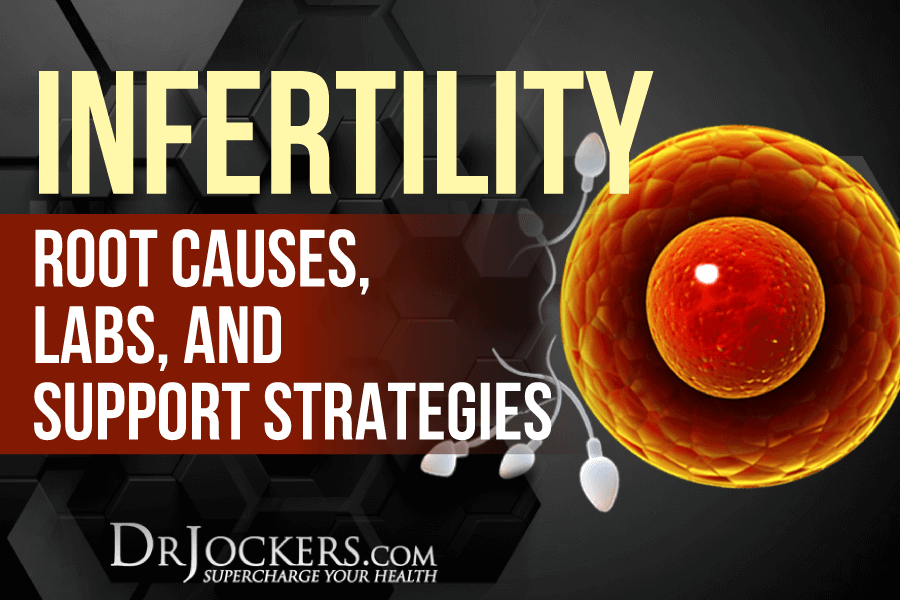 Infertility: Root Causes, Labs, and Support Strategies
Infertility: Root Causes, Labs, and Support Strategies
If you are dealing with infertility, you are not alone. About 10 percent of couples experience infertility issues at one point in their life. One-third of the cases happen due to female infertility issues, one-third because of male infertility, and one-third because of both parties or unidentified causes.
The fear of infertility is not unknown to my wife, Angel, and me. Back in her twenties, Angel was diagnosed with endometriosis and was told that she would have a very hard time getting pregnant in the future. When we met, I recommended her a nutrition plant with key supplementation and she was able to dramatically improve her health.
Our twin boys, Joshua and David were born on December 31st, 2015, 10 months after our marriage. We got pregnant a year and a half later and our beautiful daughter, Joyful Christine was born on May 14th, 2018, and our youngest, little Shine Caroline on May 12th, 2021.

Having children has changed our lives for the better. We love watching them grow, interact, discover the world, and grow into their own personality while teaching them how to be good people. I want you to experience the same joy as we do.
In this article, you will learn what infertility is. You will learn about both male and female infertility. You will understand the top causes of infertility. I will recommend some lab testing for infertility to identify underlying causes, nutrient deficiencies, and potential health issues. I will share my top natural support strategies to improve your health and overcome infertility naturally.

What Is Infertility
According to the Centers for Disease Control and Prevention (CDC), infertility generally means not being able to get pregnant after one year of unprotected sex and actively trying. At this point, it’s recommended to visit a fertility specialist. Since fertility in women steadily declines with age until they reach menopause, women 35 or older may visit a specialist for evaluation even after only 6 months.
Women who can get pregnant but are unable to stay pregnant multiple times over time may also be dealing with infertility. In the United States alone, about 6.1 million (10 percent) females between ages 15 and 44 have difficulty getting or staying pregnant. Some couples, especially when older or at risk of infertility, may seek evaluation even before trying to get pregnant (1, 2, 3).
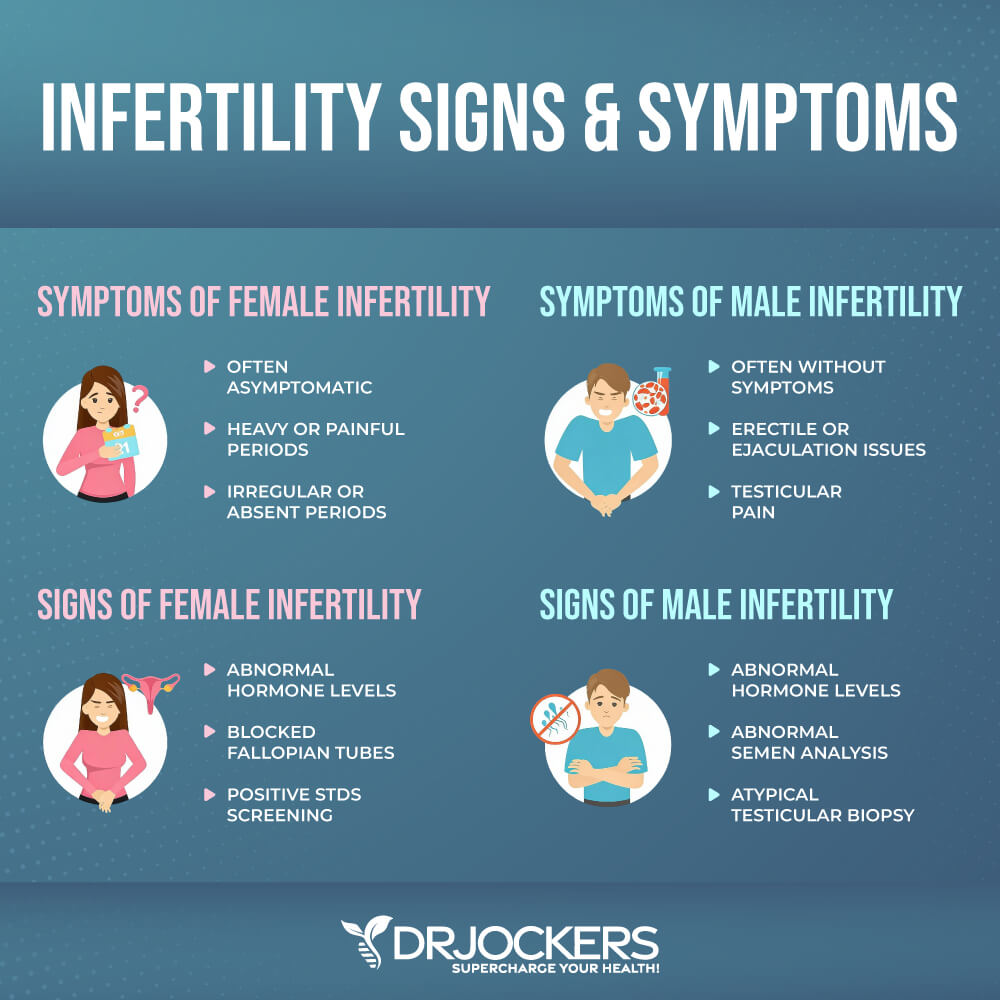
Male vs Female Infertility
Many assume that infertility happens because of issues in the female body, however, infertility may happen because of male or female infertility or both. Pregnancy is the end result of a complicated multiple-step process. First, the female body must release a healthy egg from one of her ovaries during ovulation.
A man must produce healthy sperm and healthy sperm must join the egg released to fertilize it. There is a short window of a day to a few days for fertilization to happen. After fertilization, the fertilized egg must move through the fallopian tube towards the uterus. Once there, it must attach inside of the uterus during implantation (2).
As you can see, many issues can arise in this process that can happen in both the female and the male body. After implantation, it is also important for pregnancy to stay. According to the American College of Obstretiticans and Gynecologists, early pregnancy loss, or miscarriage before the 13-week mark is common and happens in 10 percent of pregnancy cases (4).
While it’s common, if it happens again and again it may be due to infertility. Impaired fecundity is a condition that refers to women who are experiencing difficulties getting or staying pregnant (2).
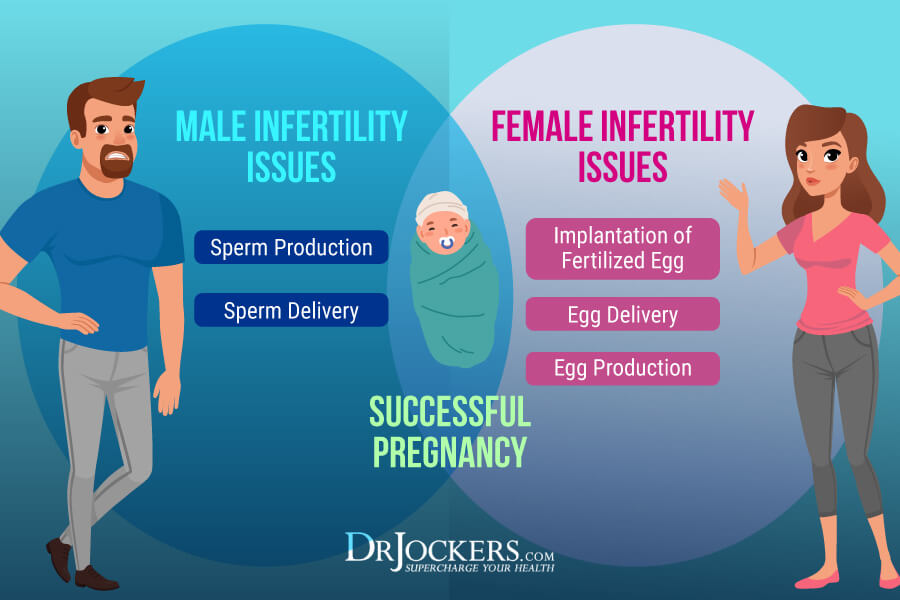
Male Infertility
According to the CDC, about 9 percent of males of reproductive age and 11 percent of females of reproductive age have experienced problems with infertility in the United States (5). About one-third of infertile couples experience infertility as a result of a health problem in the female, one-third as a result of a health issue in the male, and one-third either because of a health issue in both parties or because of a reason that cannot be identified.
Fertility declines with age in both males and females. In men, it happens more gradually, while in females it happens over a shorter period of time. Females in their 30s are half as fertile as in their 20s, and their chances of pregnancy decline significantly after they reach age 35 (6).
Male causes of infertility may include problems with the effective production of sperm, sperm count, the shape of the sperm, and the movement of the sperm. Female causes of infertility may include problems related to ovulation, fertilization, and implantation.
Infertility may happen because of multiple factors related to diet, lifestyle, health, toxicity, medical conditions, and medications. In the next section, I will go over some important root causes of infertility.
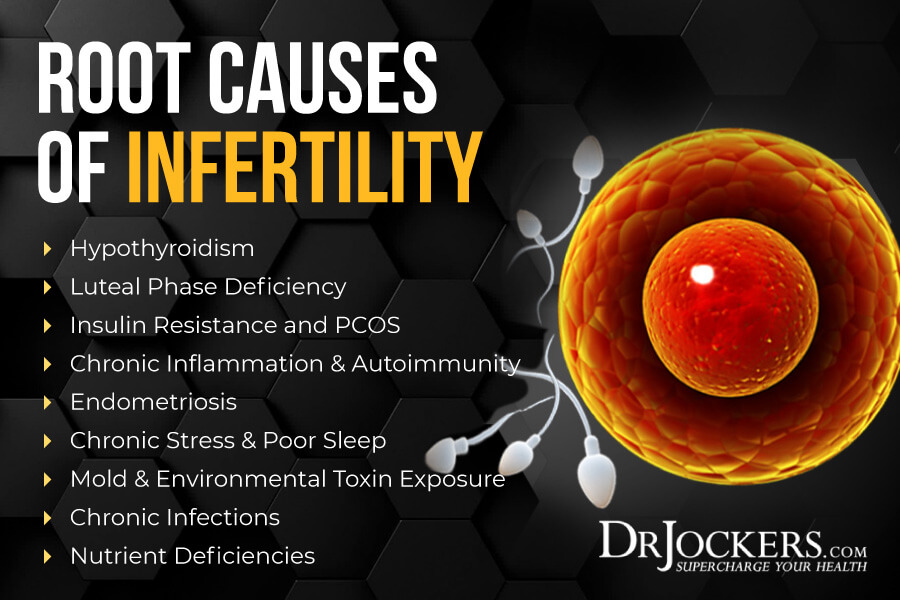
Root Causes of Infertility
A variety of problems may cause or increase your risk of infertility. Here are the top root causes of infertility that you need to be aware of:
Hypothyroidism
Hypothyroidism is a common thyroid condition in which the thyroid hormone doesn’t produce enough thyroid hormones resulting in fatigue, weight gain, irritability, slow heart rate, dry skin, hair loss, and other issues. Hypothyroidism may affect the health of your other hormones and may also increase your risk of infertility.
According to a 2015 study published in the Indian Journal of Endocrine Metabolism, 53.7 percent of the 95 female participants with infertility had hypothyroidism (7). 33.3 percent of them were able to conceive only after 6 weeks of thyroid treatment.
Another study from 2012 published in the International Journal of Applied Basic Medical Research has also found that hypothyroidism is prevalent in infertile women. 23.9 percent of the 394 infertile participants had hyperthyroidism (8). After 6 weeks to 12 months of thyroid treatment, 76.6 percent were able to conceive successfully.
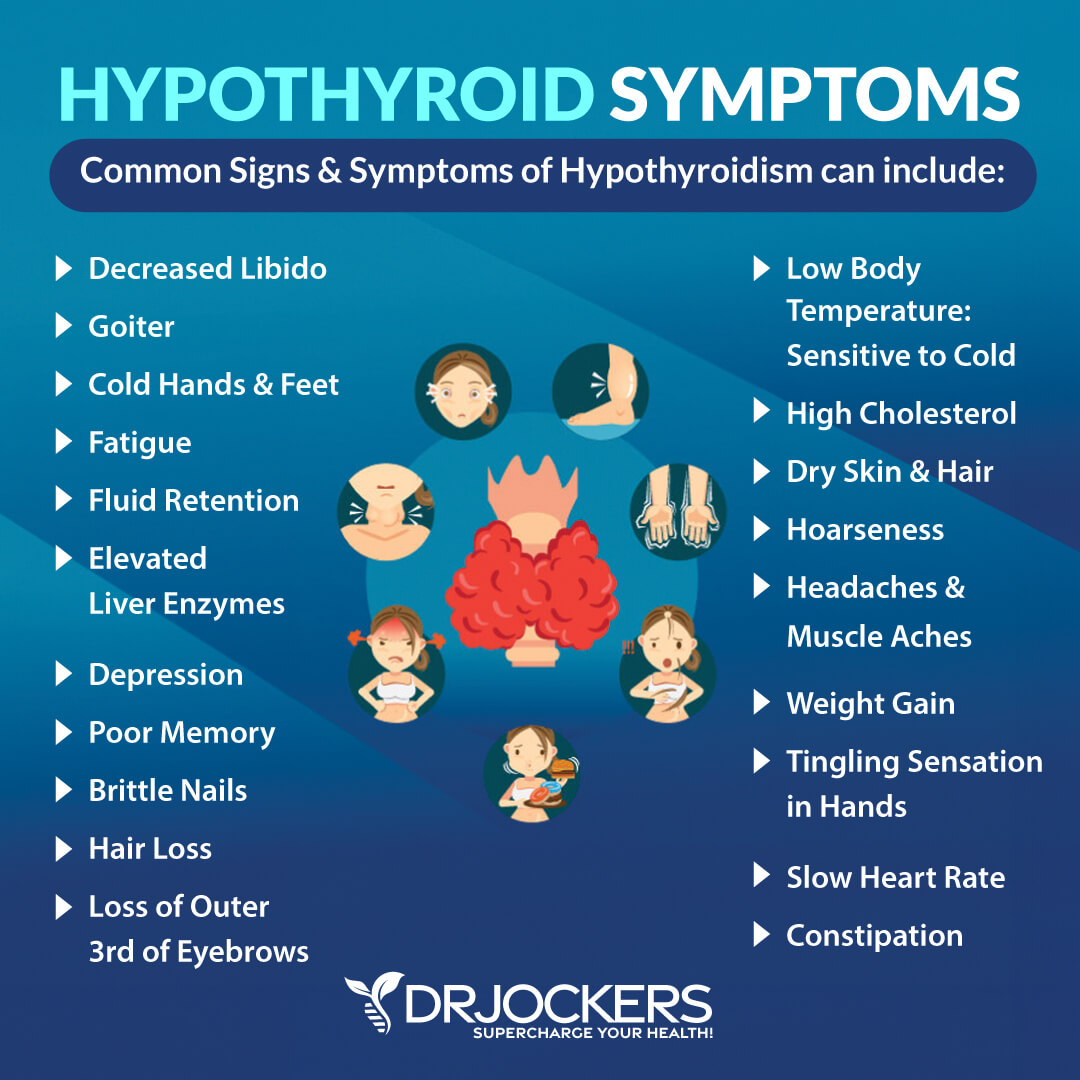
Luteal Phase Deficiency
Many women who are struggling with infertility are also dealing with luteal phase deficiency. The luteal phase is an important stage of the menstrual cycle and occurs after ovulation and before menstruation. This is the time when the lining of the uterus gets thicker to prepare the female body for pregnancy if it occurs.
Luteal phase deficiency means that the lining does not grow and thickens making pregnancy or remaining pregnant difficult. A 2017 community-based cohort study published in Fertility and Sterility has found that a shorter luteal phase may be linked to infertility (9).
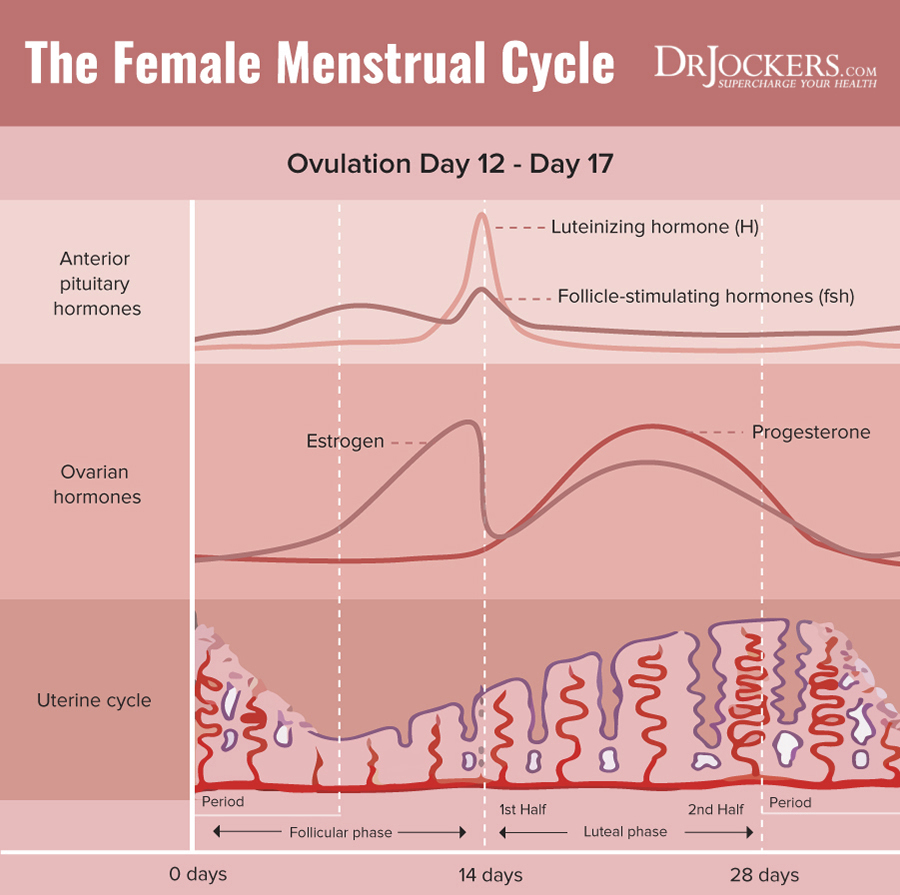
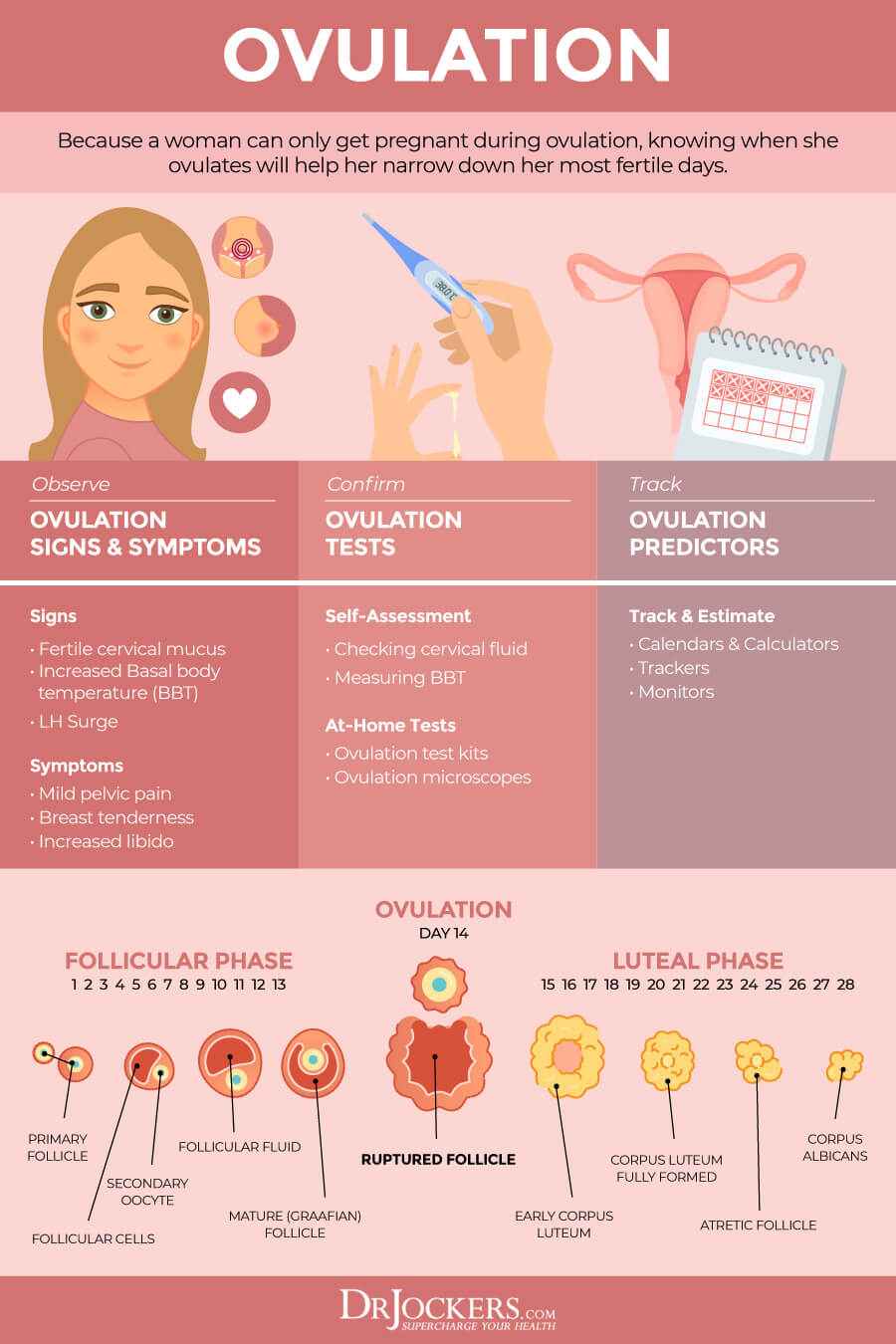
Insulin Resistance and PCOS
Insulin resistance refers to a resistance to the hormone insulin that causes increased blood sugar in the body. Insulin resistance can increase the risk of diabetes and a variety of other health issues. Polycystic ovary syndrome (PCOS) is a common hormonal issue in women of reproductive age.
Women with PCOS are also often dealing with insulin resistance which may increase their risk of infertility. A 2019 study published in Clinical Endocrinology (Oxford) looking at 1000 women across 27 hospitals has found a link between hyperinsulinemia and insulin resistance and fertility in PCOS (10). A 2017 study published in Science Reports examined 159 women with PCOS and 54 women without PCOS and found a potential link between insulin resistance, obesity, and infertility in those with PCOS (11).
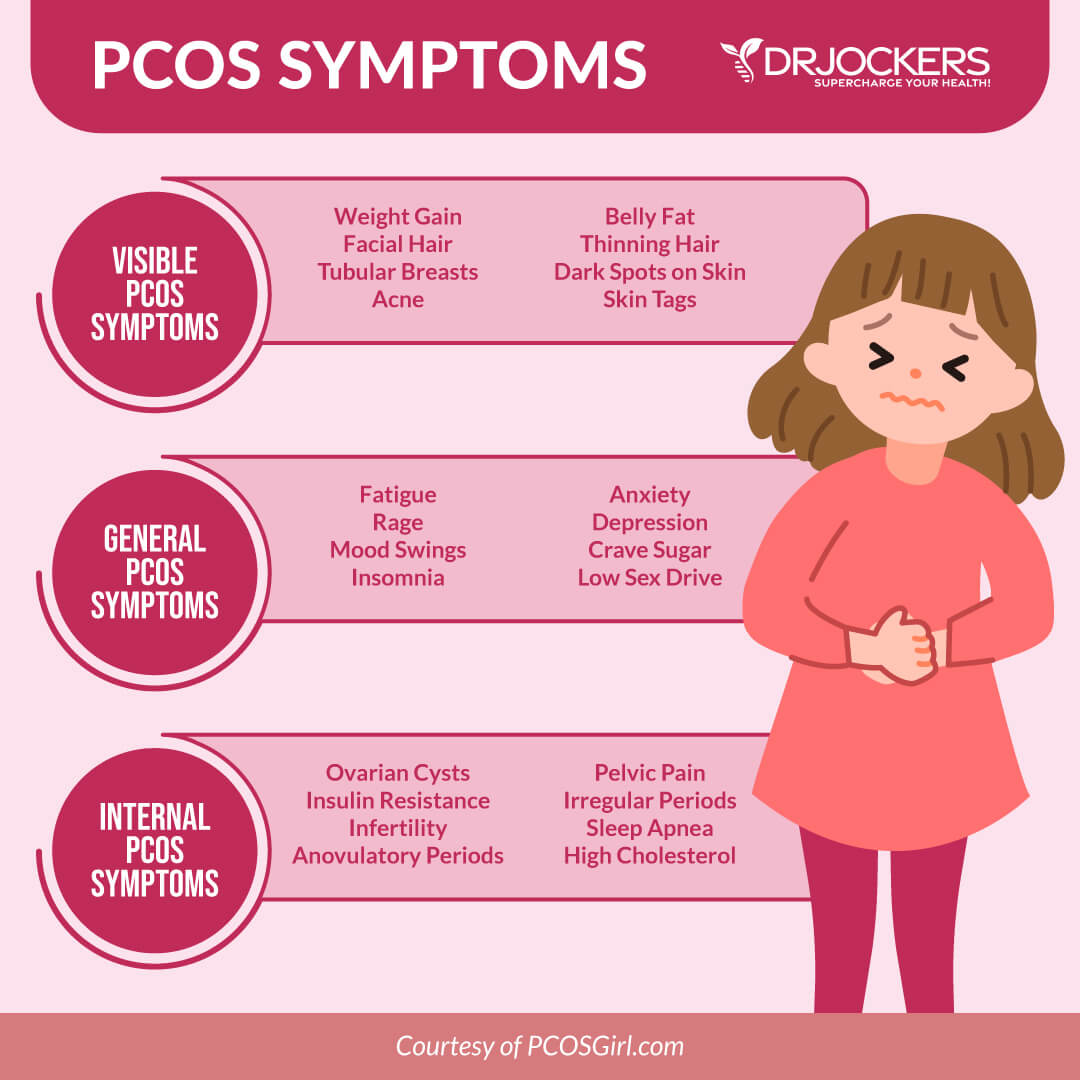
Chronic Inflammation, Autoimmunity, and Endometriosis
Chronic inflammation is the root cause of most chronic health issues, including autoimmune diseases. Autoimmune conditions develop when your body mistakenly attacks its own cells. Endometriosis is a condition when tissues grow outside the uterus affecting the fallopian tube, ovaries, and intestines causing pain and menstrual issues.
All these issues may be linked to infertility. According to a 2019 study published in the Best Practices and Research in Clinical Endocrinology and Metabolism, systemic autoimmune diseases, such as systemic lupus, Celiac disease, endometriosis, thyroid conditions, and rheumatoid arthritis may increase the risk of infertility (12).
A 2017 study published in the Acta Obstetricia Gynecologica Scandinavica has found that endometriosis can play a role in infertility (13). The study found that medication and hormonal treatment had no effect alone, and while in-vitro fertilization (IVF) may be effective in some cases, it has lower success rates in more advanced cases. A 2010 review published in the Journal of Assisted Reproduction and Genetics on endometriosis and infertility has also found a low success rate in the treatments (14).

Chronic Stress & Poor Sleep
Lifestyle and mental health both play an important role in your emotional health. Several studies, including a review published in Dialogues in Clinical Neuroscience published in 2018, have discussed the relationship between stress and infertility (15). Women with infertility often also report anxiety and depression, which increases stress and can lead to a vicious cycle.
Psychological studies addressing stress and psychological distress have helped to improve pregnancy rates in women dealing with infertility. Poor sleep can also increase chronic stress.
Chronic stress and poor sleep can not only impact one’s psychological and emotional state but increase inflammation in the body which may increase the risk of autoimmune and hormonal issues that can increase the risk of infertility. Not to mention that being chronically stressed and constantly fatigued may not be the best psychological environment that supports conceiving.
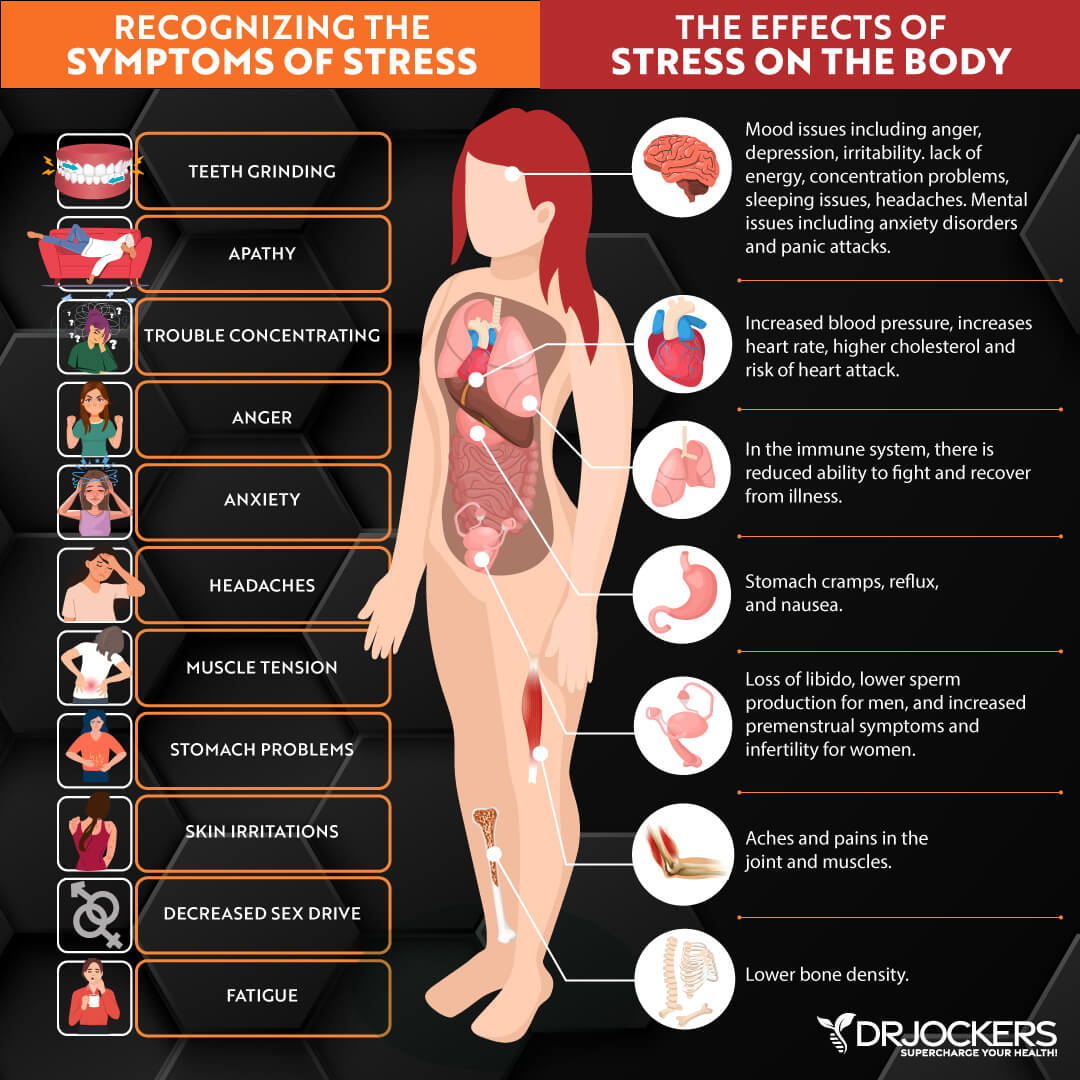
Mold & Environmental Toxin Exposure
Mold and environmental toxin exposure may also increase your risk of infertility. Mold and toxicity can compromise your microbiome health, increase inflammation, disrupt your hormones, and contribute to a number of symptoms and health issues, so and may contribute to infertility as well.
A 2019 study published in Advances in Dermatology and Allergology/Postȩpy Dermatologii i Alergologii has found that allergic diseases can impact hormonal and immune health and increase infertility (16).
According to a 2019 study published in Toxins (Basel), mycotoxins and mold toxin exposure may negatively impact male reproductive health and efficiency (17). If you are struggling with infertility, you should consider the influence of mold in your home or office space or other environmental toxin exposure.

Chronic Infections
Chronic infections can increase the risk of inflammation, gut microbiome imbalance, and a variety of health issues, including infertility. According to a 2014 study published in the World Journal of Gastroenterology, H. pylori infections may impact cervical mucus, follicular fluid, and sperm motility and increase the risk of infertility (18).
A 2010 study published in the Journal of Obstet and Gynecology has found that Lyme disease in those with endometriosis may contribute to infertility (19). A 2003 study published in Fertility and Sterility found that the herpes simplex virus may contribute to infertility in men while the cytomegalovirus and the Epstein-Barr virus (EBV) did not (20).
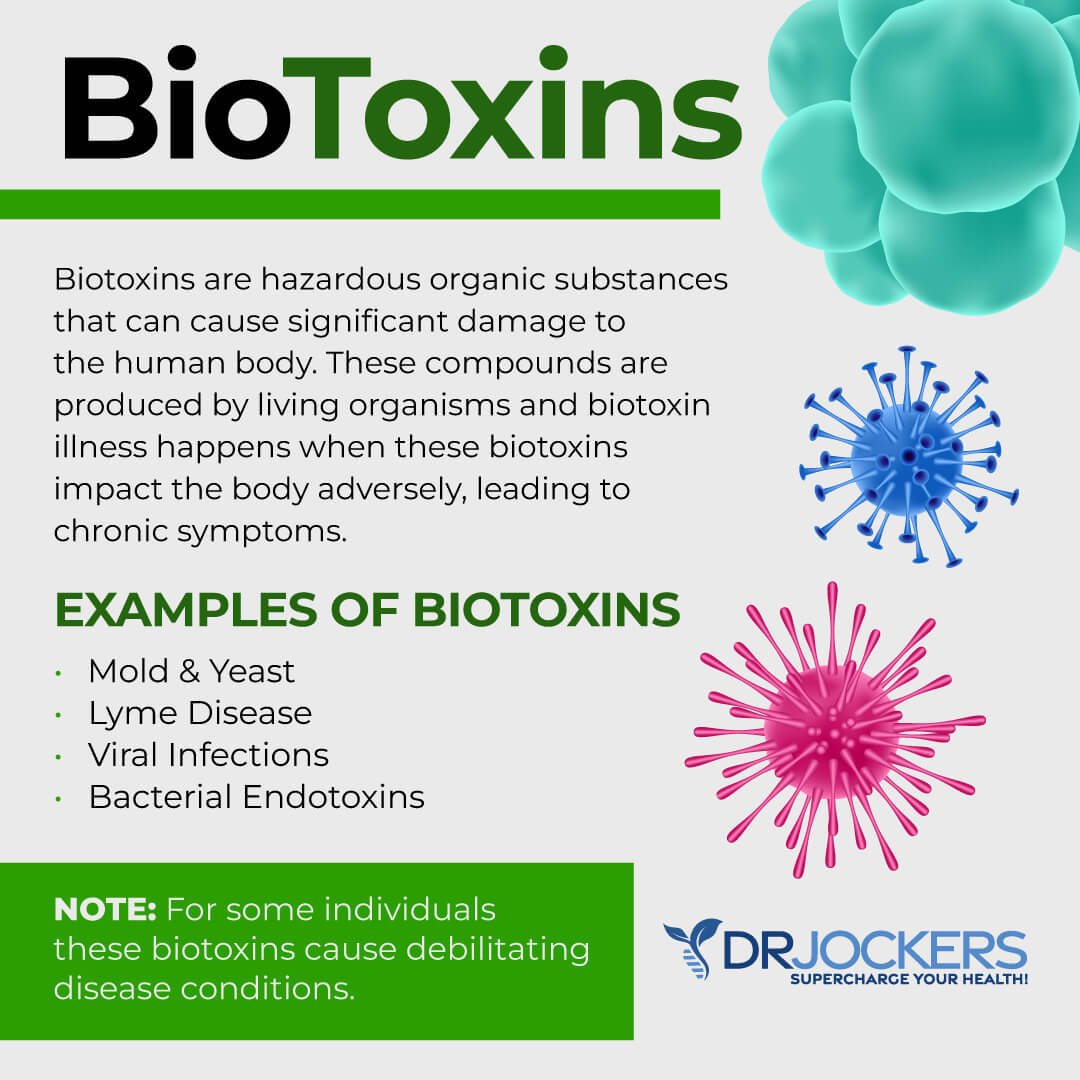
Nutrient Deficiencies
What you eat and what nutrients you put into your body can seriously impact your health and may increase the risk of infertility. The following nutrient deficiencies have been linked to infertility:
Iron Deficiency
Iron deficiency is common in women, especially in those with a heavy period or low-iron diet. According to a 2006 study published in Obstetrics and Gynecology, low iron levels may increase the risk of ovulatory infertility in women (21). It is important to look for signs and symptoms of anemia and get your red blood cells, iron, and serum ferritin levels tested a few times per year to ensure you are not iron deficient.
B Vitamins
Deficiency in B vitamins can also affect infertility, especially in men. According to a 2017 study published in Biomolecules, B12 deficiency may lower semen quality and cause infertility (22). According to a 2011 study published in the Asian Journal of Andrology, vitamin B12, and folate deficiency may cause infertility in males (23).
Zinc
Zinc levels may also play a role in your fertility. According to a 2018 review published in the Journal of Reproduction and Infertility, zinc levels may affect sperm quality and male fertility (24). Another 2018 study published in the American Physiological Society has found that zinc deficiency may affect egg quality and contribute to infertility (25).
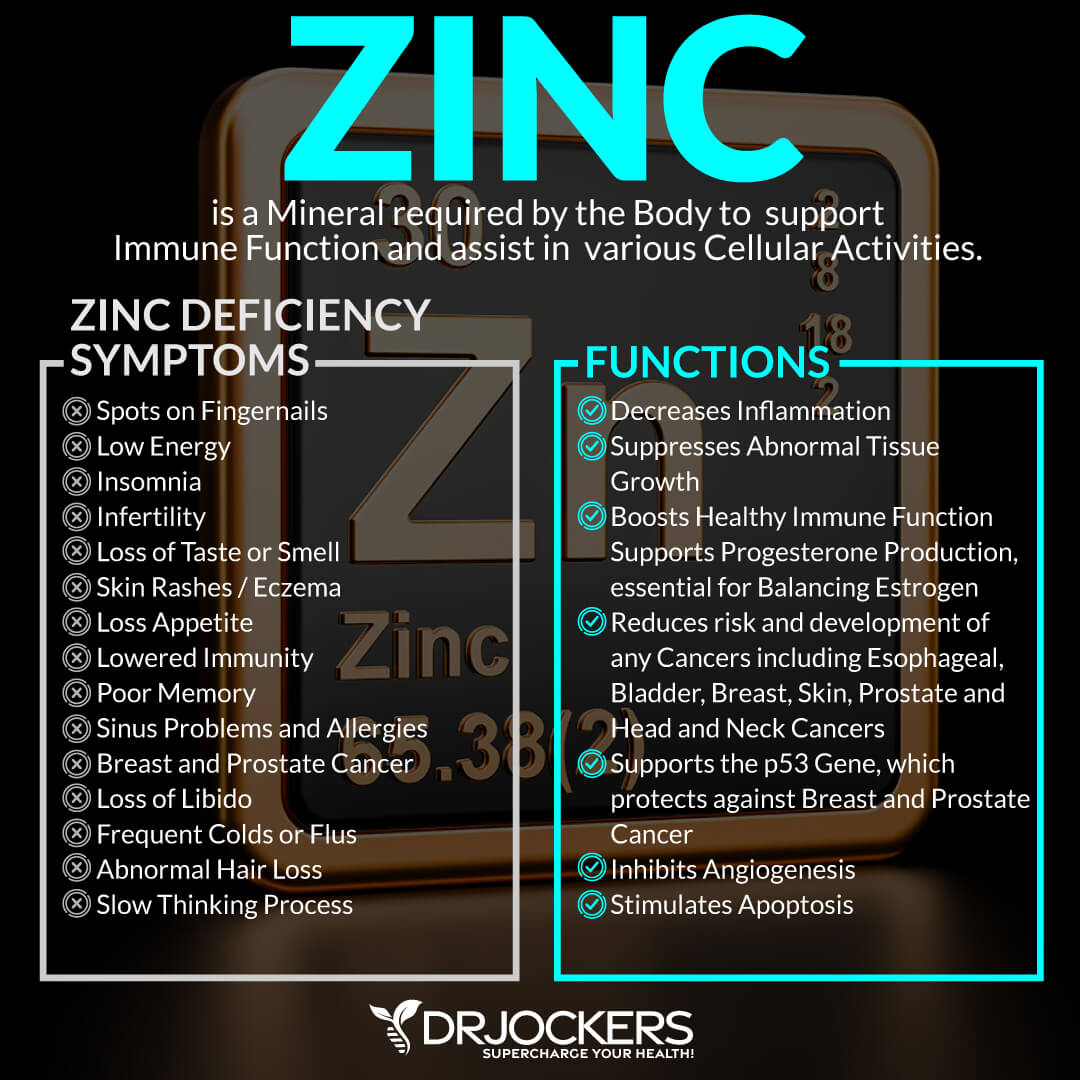
Vitamin D
Spending time on your sun and optimizing your vitamin D levels seems to be important for fertility as well. According to a systematic review published in the Journal of Endocrinology, vitamin D deficiency may affect fertility in both men and women by affecting sperm motility, the testis, the ovaries, and the uterus (26).
According to a 2018 review published in the International Journal of Environmental Research and Public Health, vitamin D deficiency may lead to negative pregnancy outcomes and complications with breast milk production (27).
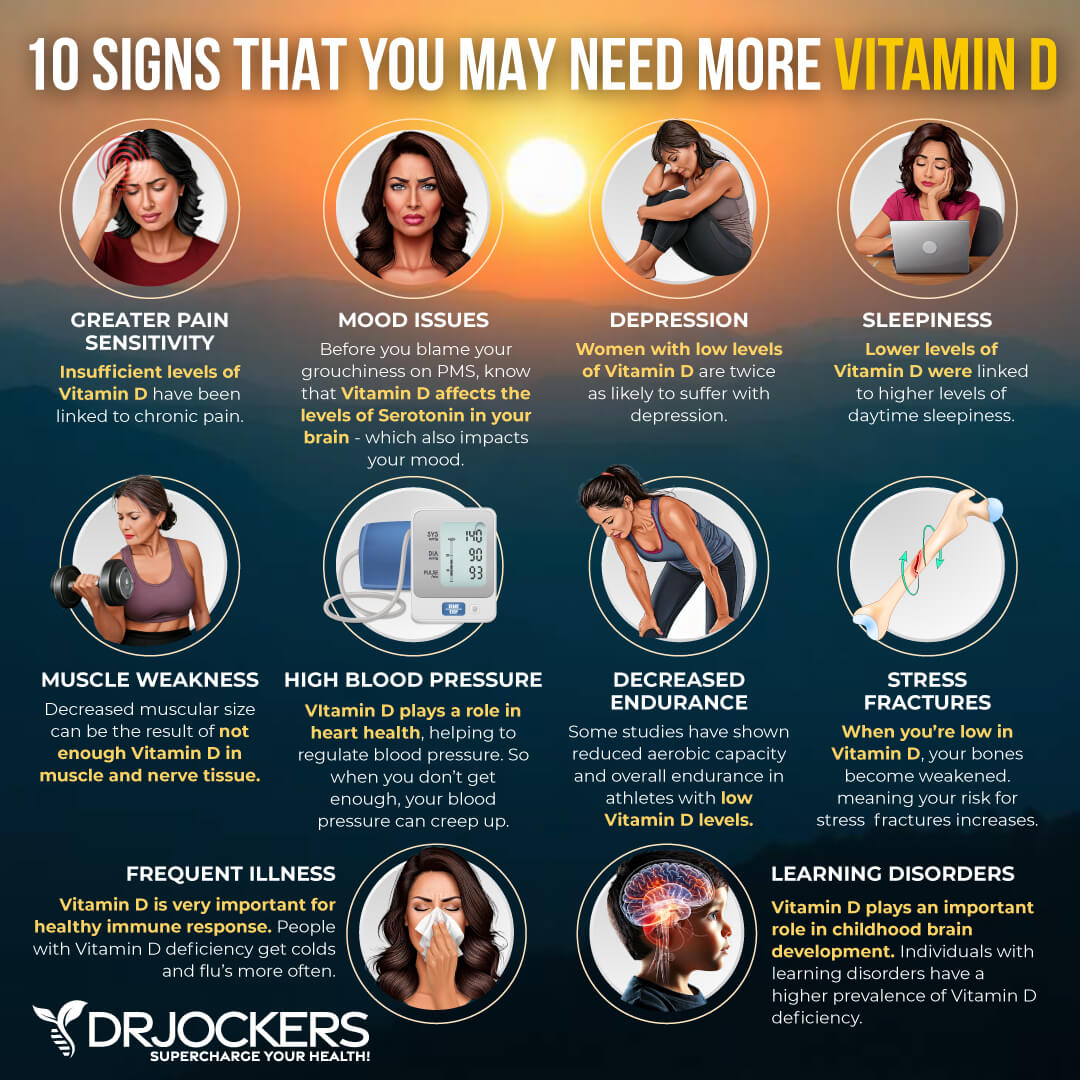
Key Blood Labs to Get
If you are dealing with infertility or you want to optimize your chances of pregnancy by identifying and correcting some potential health issues, I recommend a variety of lab tests. Since men and women can both be affected by infertility and each party’s health is critical to a healthy pregnancy, these tests may be appropriate and recommended to both parties.
CBC, Serum Iron & Ferritin Levels
I recommend a Complete Blood Count (CBC) looking at your red blood cells (RBCs), white blood cells (WBCs), and platelets (PLTs). It can identify infections and health issues, including anemia. Since iron plays an important role in fertility, I recommend that we check your serum iron and ferritin levels.
Full Thyroid Panel
As you’ve learned, hypothyroidism may increase your risk of infertility, and problems with your thyroid hormone can affect other hormones as well that may impact your fertility. I recommend a full thyroid panel, including TSH, T4, T3, Free T4, Free T3, TPO Ab, and TG Ab.
It is important to review these with a functional health practitioner to make sure you are producing and converting enough active thyroid hormone. In particular, your TSH should be under 3 uIU/mL and your free T3 levels should be between 3-4 pg/mL

HbA1C & Fasting Insulin
Insulin resistance may impact your fertility. I recommend that we test for hemoglobin A1C (HbA1C) and fasting insulin to check your blood sugar levels and see if you have insulin resistance or blood sugar issues.
Your HbA1C should ideally be between 4.5 – 5.2 to be metabolically healthy. Your fasting insulin should be under 5 for good metabolic health.
Hs-CRP
To detect possible inflammation, I recommend testing for highly sensitive quantification of C-reactive protein (Hs-CRP), a protein that can measure general inflammation levels.
Your Hs-CRP should be under 1.0. If it is over 1.0, there is an inflammatory issue going on in the body.
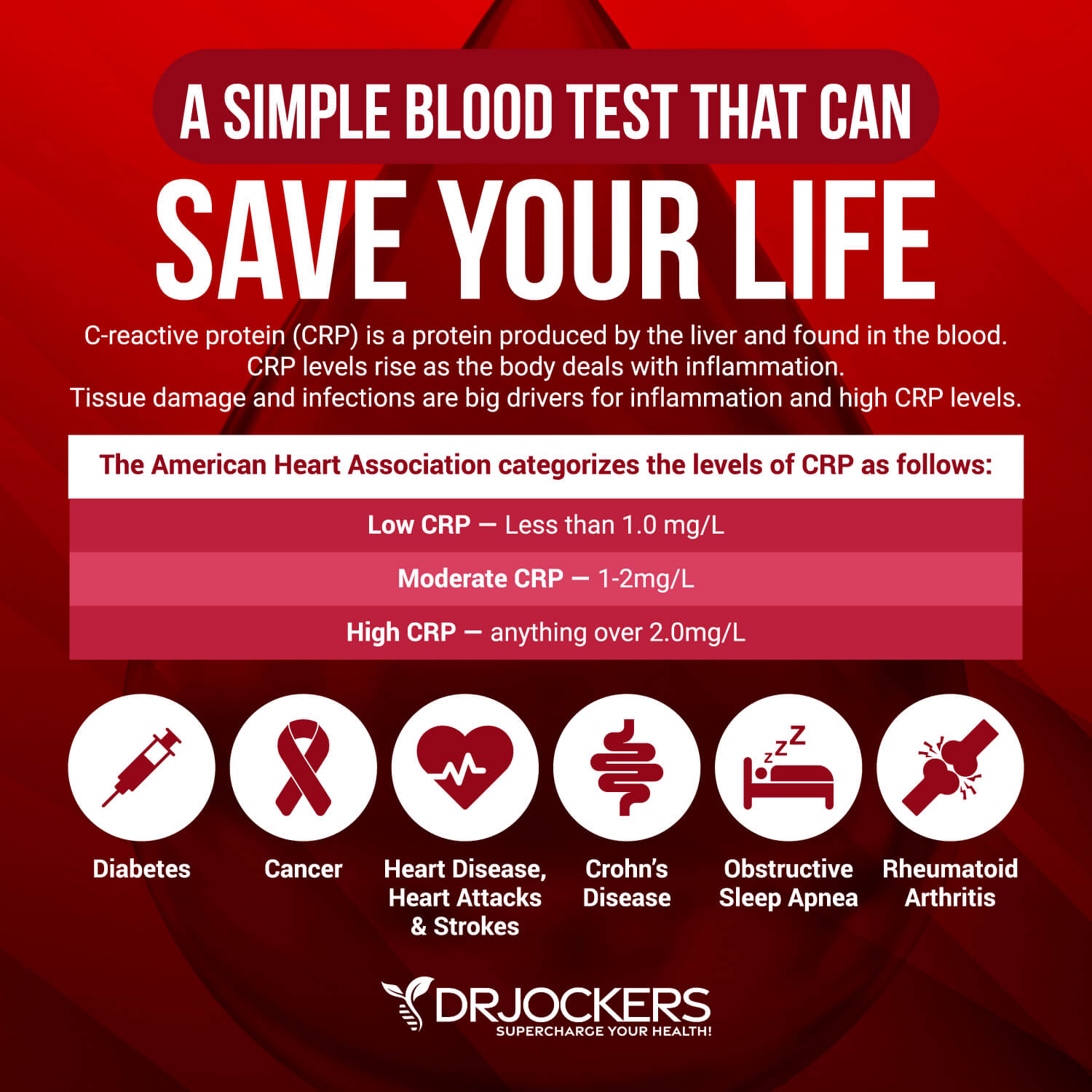
Folate, B12 & Homocysteine
Folate and B12 deficiencies have been associated with infertility, so testing for these vitamins is critical. I recommend checking your homocysteine levels as well. It is an amino acid that at high levels has been associated with B12 and folate deficiencies.
Your serum folate levels should be above 5 ng/ml and B12 should be above 800 pg/mL while your homocysteine levels should be between 6-9 umol/L. If homocysteine is above 9 umol/L it is a sign of poor methylation, and this can be a major factor in the development of infertility.
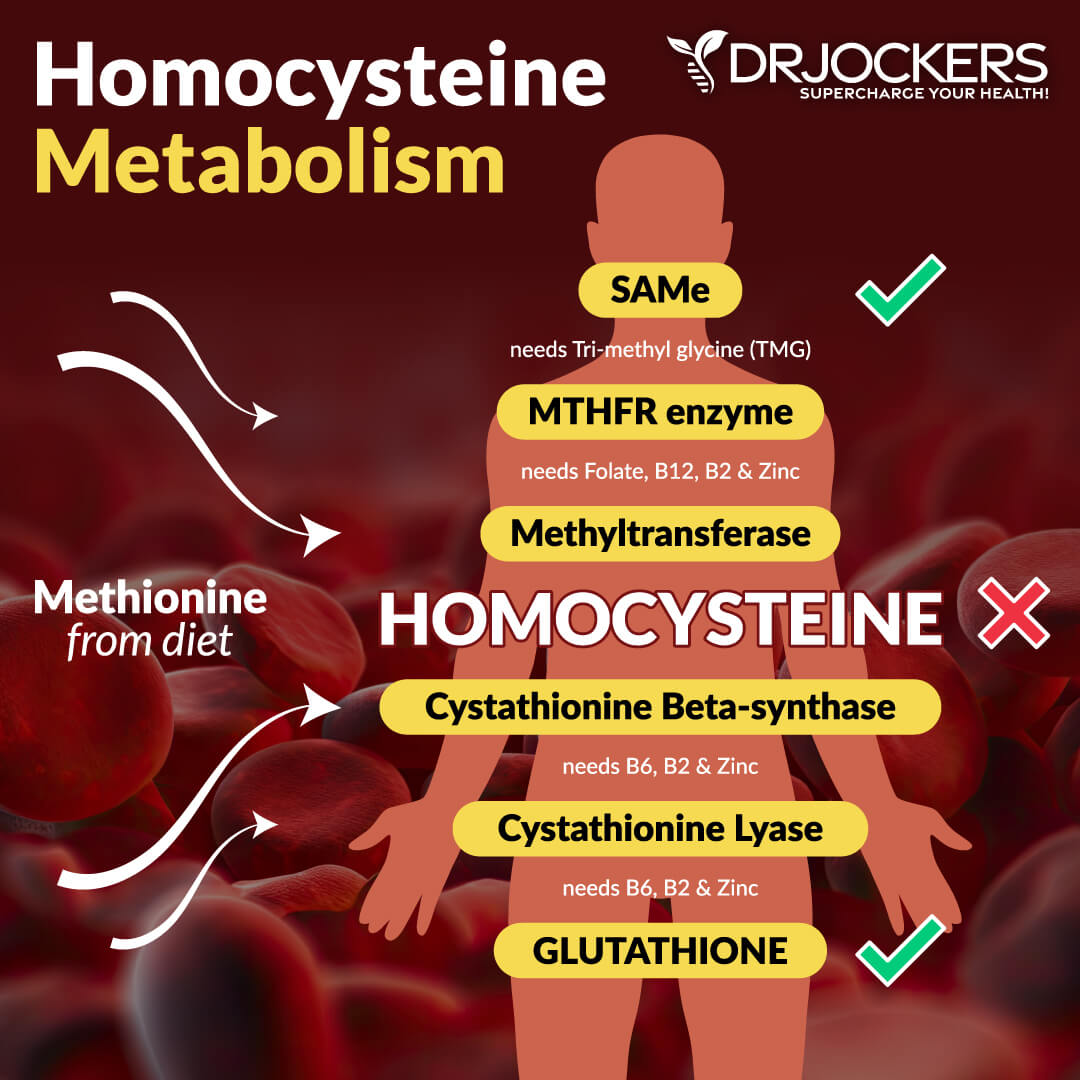
Serum Zinc
Since low zinc levels have been linked to infertility in both men and women, I recommend testing for serum zinc testing that can help to monitor zinc levels and indicate deficiencies. Ideally, your serum zinc should be between 90-135 ug/dL and they should be slightly higher than serum copper levels.
Comprehensive Blood Analysis
To check for all these health factors, get a greater understanding of your health, rule out potential health issues, and identify underlying causes of infertility and other health problems, I recommend a Comprehensive Blood Analysis.
It is a simple blood test that looks at a large number of areas of your health and can help you use the right natural support strategies to improve your health and wellness. This includes all the labs mentioned here as well as many others that can clue a practitioner into what is happening in your body.
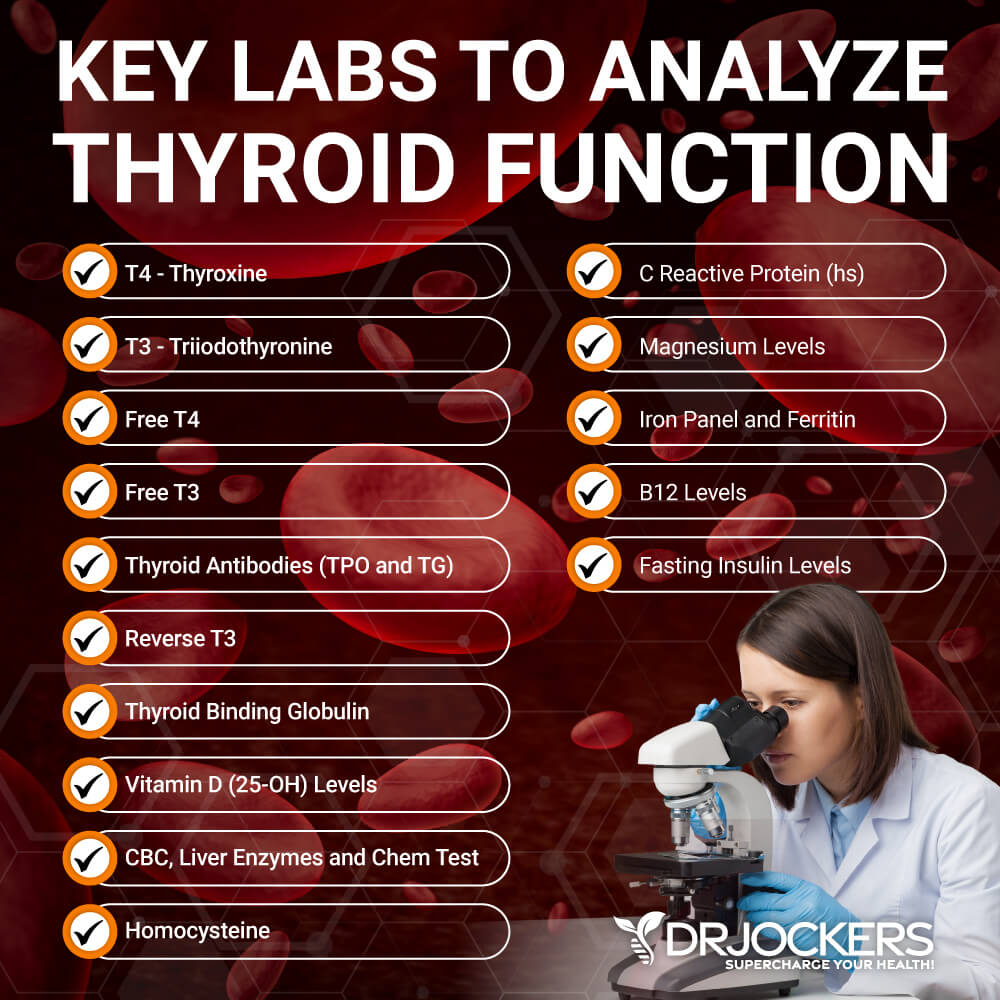
Natural Support Strategies
To improve your health, support your fertility, and support a healthy pregnancy, I recommend the following natural support strategies. Getting pregnant is a team effort and infertility issues may arise on both sides. Whether you are male or female, you can benefit from these tips and improve your health to ensure a successful and healthy pregnancy.
Anti-Inflammatory Nutrition Plan
No matter what health issues you are dealing with, identifying issues with your diet, and improving it is always a major part of recovery. This is the same for fertility issues as well. I recommend an anti-inflammatory nutrition plan.
Remove all inflammatory foods, such as refined sugar, refined all, conventional meat and dairy, gluten, food sensitivities, artificial ingredients, junk food, and processed food. Focus on anti-inflammatory whole foods, including greens, vegetables, herbs, spices, low glycemic index fruits, healthy fats, fermented food, and clean animal protein. Make sure to hydrate your body with clean purified water.
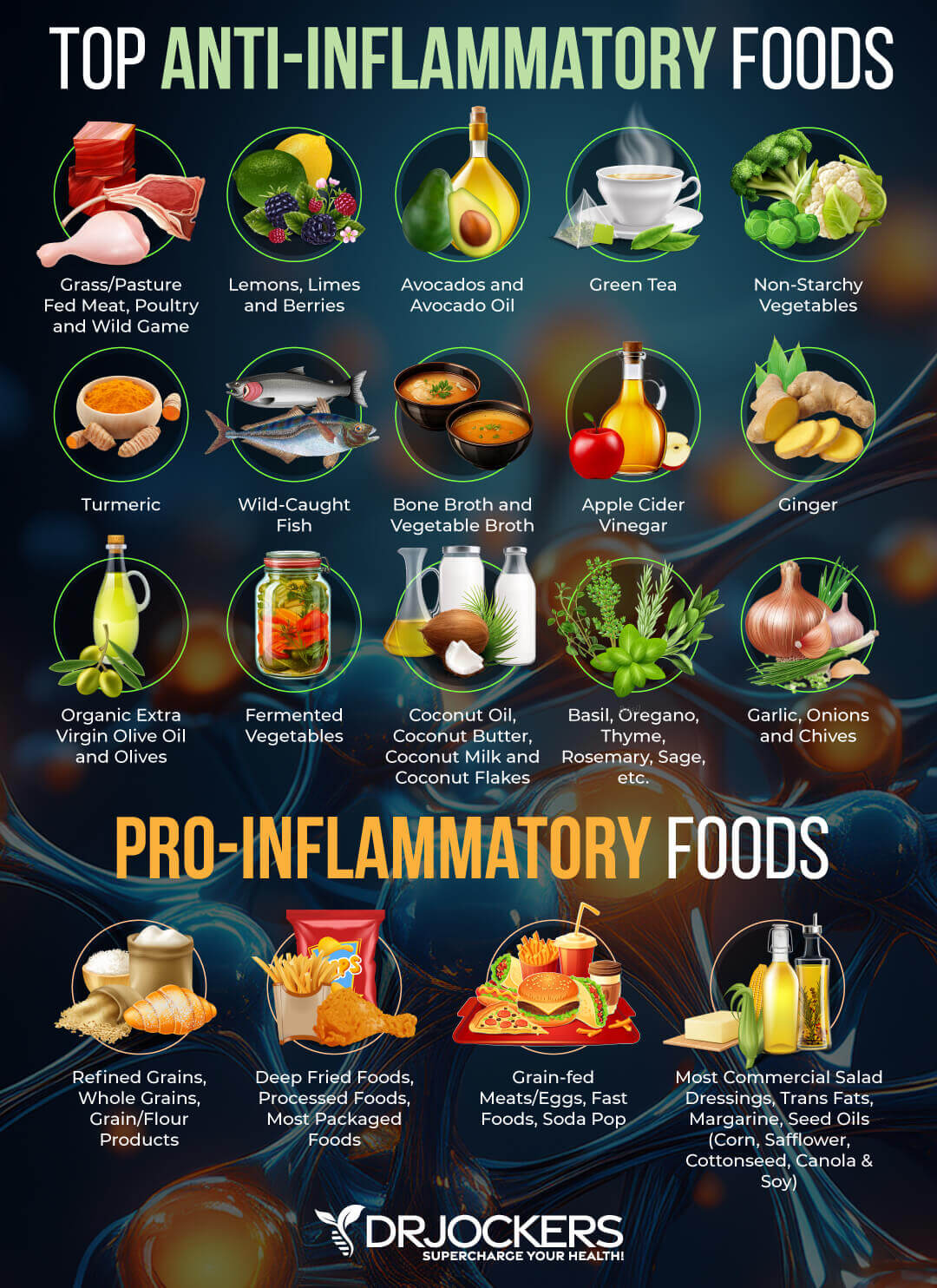
Intermittent Fasting
Intermittent fasting is a fantastic way to improve your health. It can improve cellular autophagy, insulin resistance, inflammation, and chronic health issues. It is a way of eating when you are cycling between periods of fasting or feasting. If you are new to this strategy, begin with 12 hours of fasting, including your overnight sleep, and increase your fasting period over time.
Most people feel the best with 16 hours of fasting a day. Women often feel the best with crescendo fasting, a form of intermittent fasting. You can learn about different forms of intermittent fasting by using the search bar on my website.
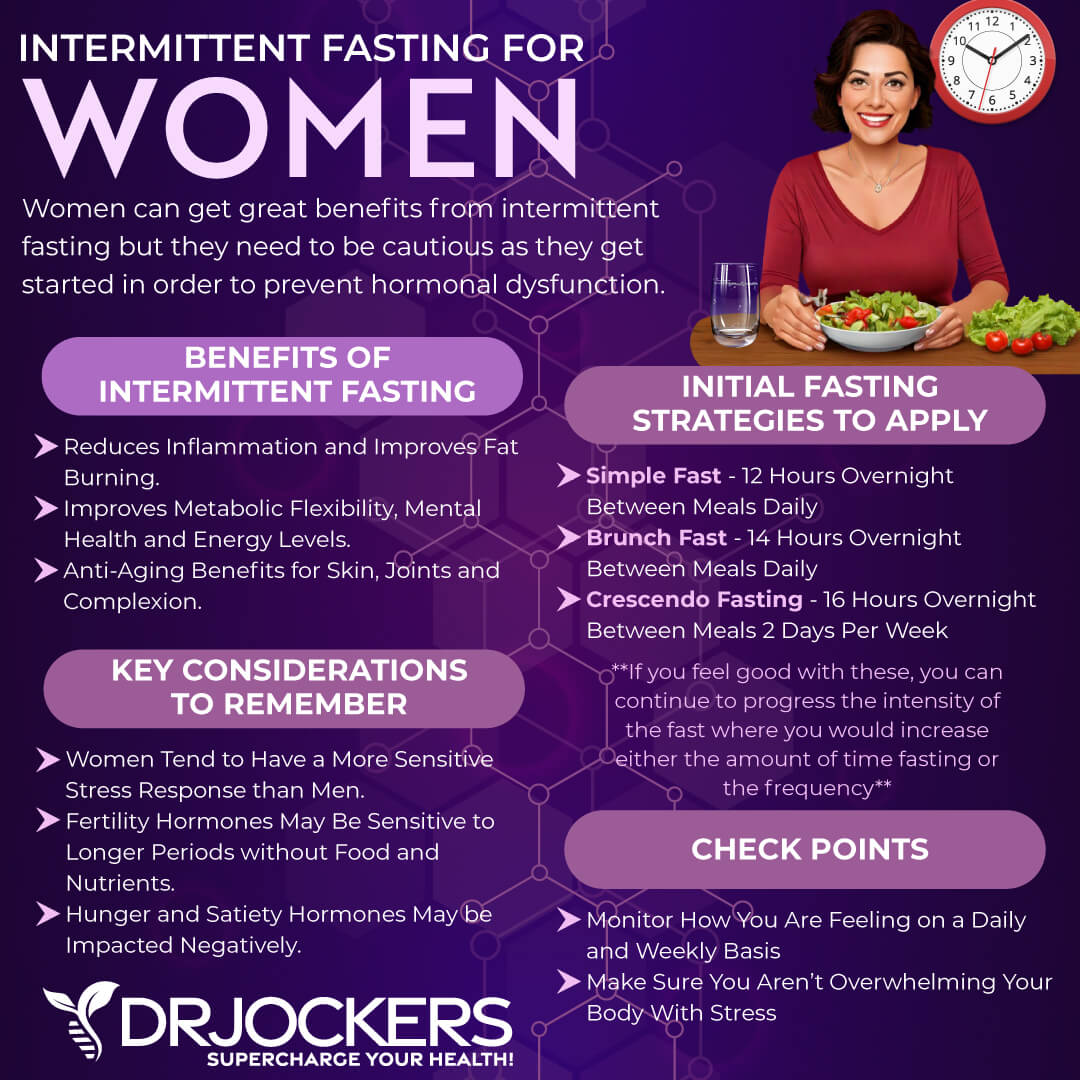
Menstrual Cycle Feast-Famine Cycling
Menstrual cycle feast-famine cycling is a strategy for intermittent fasting that follows a woman’s menstrual cycle and supports their hormonal health. Some days intermittent fasting is recommended, other days (feasting days) are non-fasting days, depending on the menstrual cycle.
For women with a ~28-day cycle, I recommend fasting between days 1 and 10 and days 17 and 21 when hormones are the lowest. This is a great time to reduce insulin, lower inflammation, and activate autophagy. Days 12 to 16 and days 22 to 28 are the time for feasting and not intermittent fasting. This time sex hormones are higher and it’s important to honor them with lots of healthy nutrition from anti-inflammatory foods.
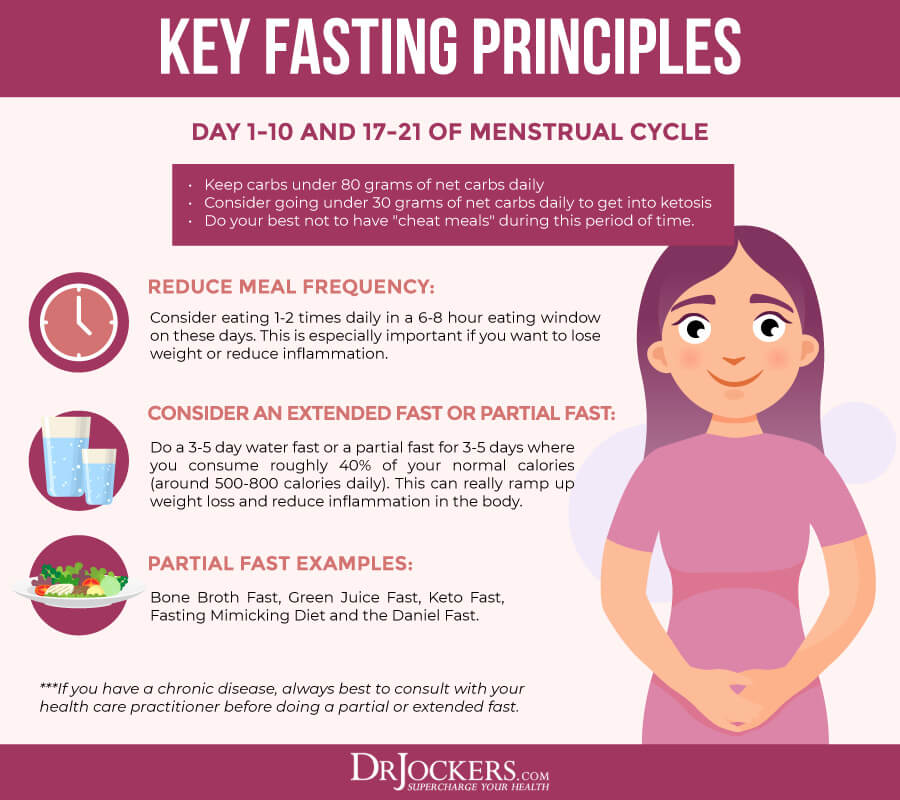
Reduce Stress & Improve Sleep
Stress and poor sleep can contribute to infertility, so it’s very important that you lower your stress levels and improve your sleep. I recommend that you practice meditation, breathwork, muscle relaxation strategies, yoga, Tai Chi, gratitude, journaling, and prayer. Spend time in nature.
Have some dedicated me-time while still seeking time with supportive friends and family. Develop a relaxing bedtime routine that works for you. Follow a regular sleep schedule that supports your body’s circadian rhythms and make sure to sleep 7 to 9 hours a night.

Regular Movement & Exercise
Moving your body is important for your overall health. Start your day with stretching, some yoga moves, or a short walk outside. Get up and stretch regularly throughout the day. Take a walk during lunch. Dance to your favorite song. Take the stairs if possible.
Exercise at least 3-5 days a week for 20 to 30 minutes each time doing whatever you enjoy the most. I also recommend getting a few days a week of resistance training to strengthen your body and add in some cardiovascular exercise such as walking, jogging, dancing, etc. to get your heart rate up a bit as well.
You may also enjoy low-intensity movements such as stretching, Pilates or yoga. While regular movement and exercise are important, it is critical that you are not overtraining and that you are fueling your workouts with proper anti-inflammatory nutrition and get enough rest and sleep.
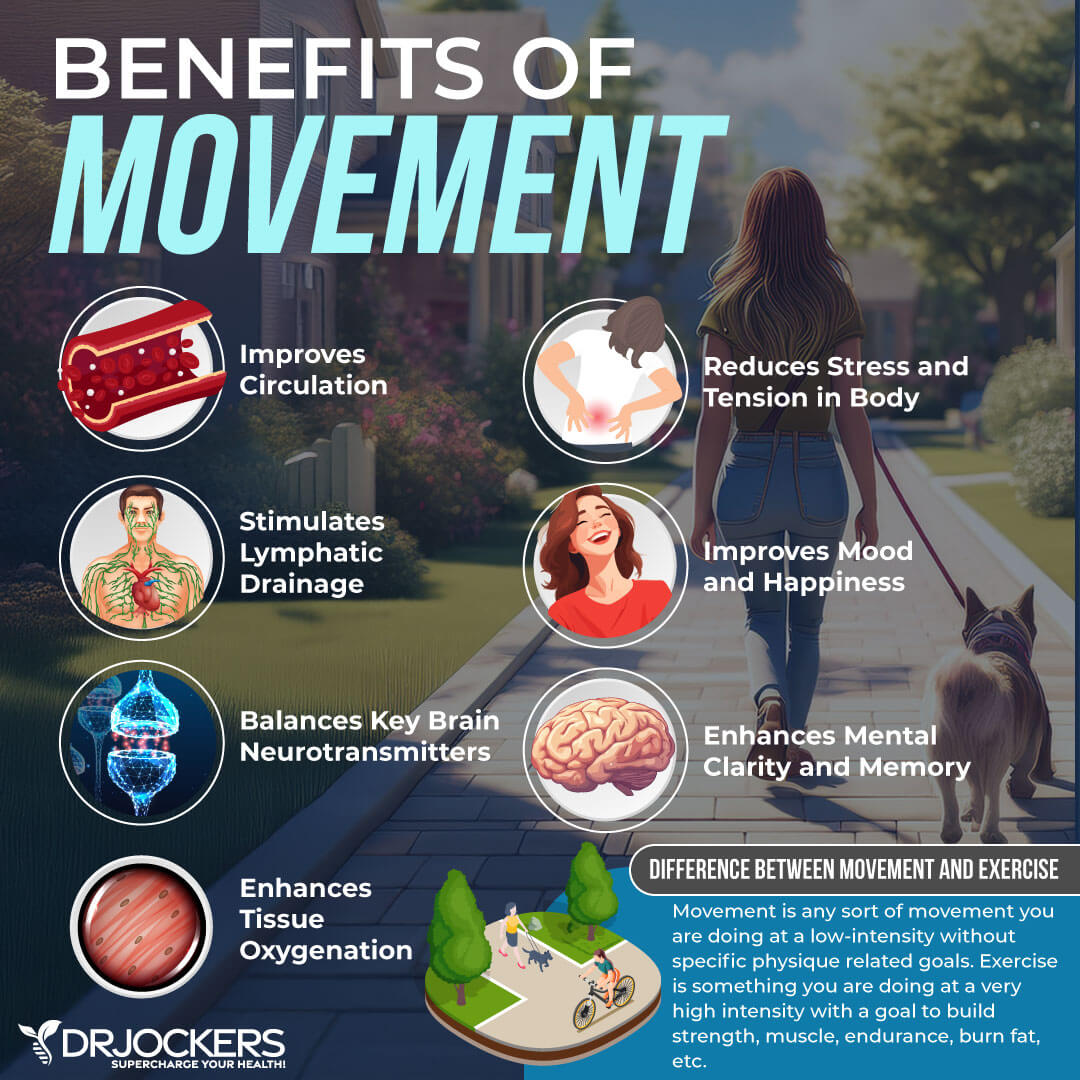
Improve Digestion & Microbiome
Your gut health is connected to everything. Microbiome imbalance can increase inflammation, blood sugar issues, and autoimmunity, which can all impact your fertility. It is important that you support your digestion and microbiome by eating an anti-inflammatory nutrition plan, eating plenty of prebiotic- and probiotic-rich foods, taking daily probiotics, and supporting your digestion with digestive enzyme supplements.
If you are dealing with any chronic infections that may affect your gut health, talk to your functional health doctors to help you address them through appropriate herbal supplementation.
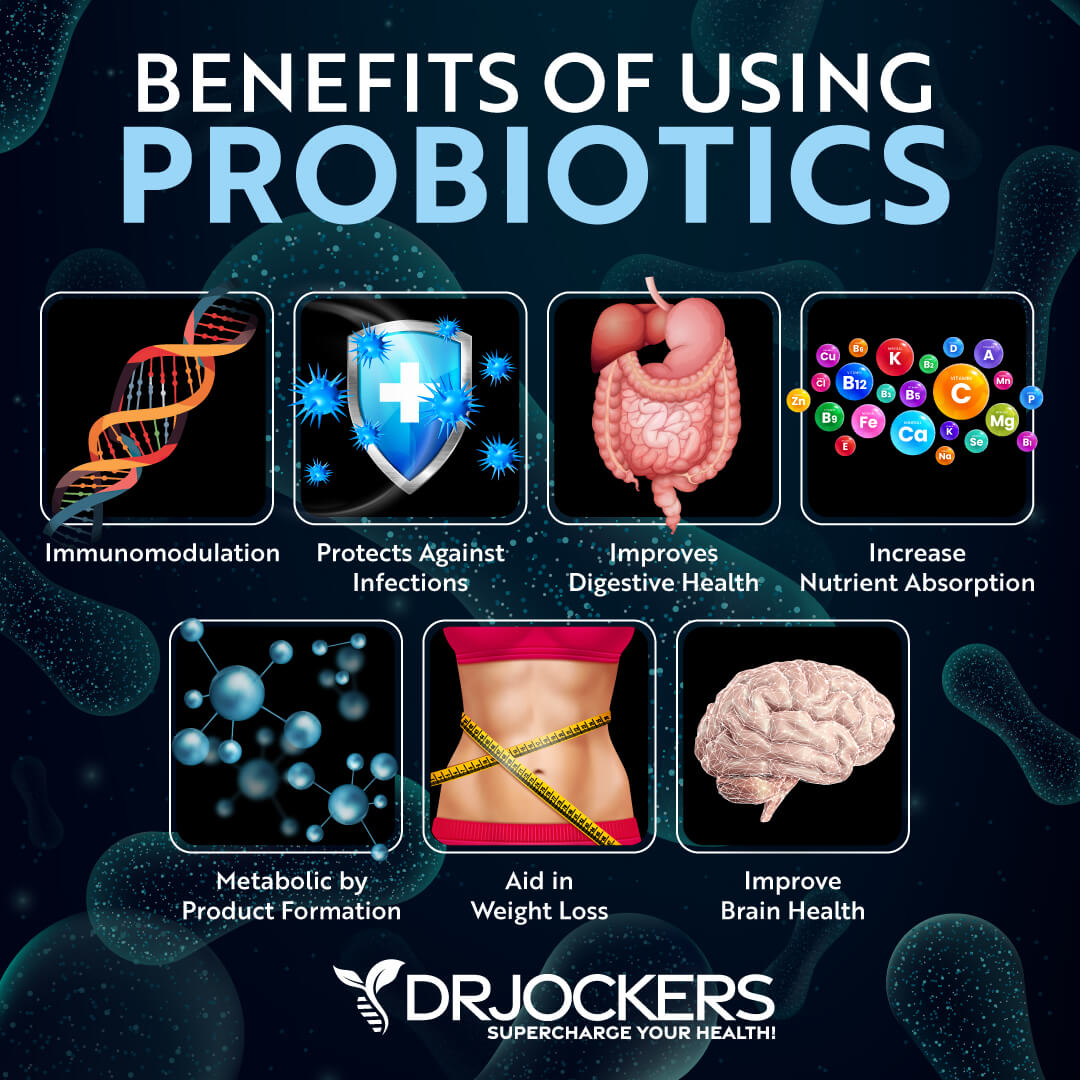
Improve Detoxification Pathways
Mold and environmental toxicity can negatively impact your fertility. A poor diet and lifestyle, a microbiome imbalance, and chronic infections also impact your health and call for some cleansing. Improving your detoxification pathways is critical.
Increasing detoxing through sweating by exercising and using an infrared sauna. Support elimination through bowel movements through a healthy diet and supplements recommended by your functional health doctor as needed. Support lymphatic health and detoxification through dry brushing and rebounding. Improve detoxification through urine with proper hydration.
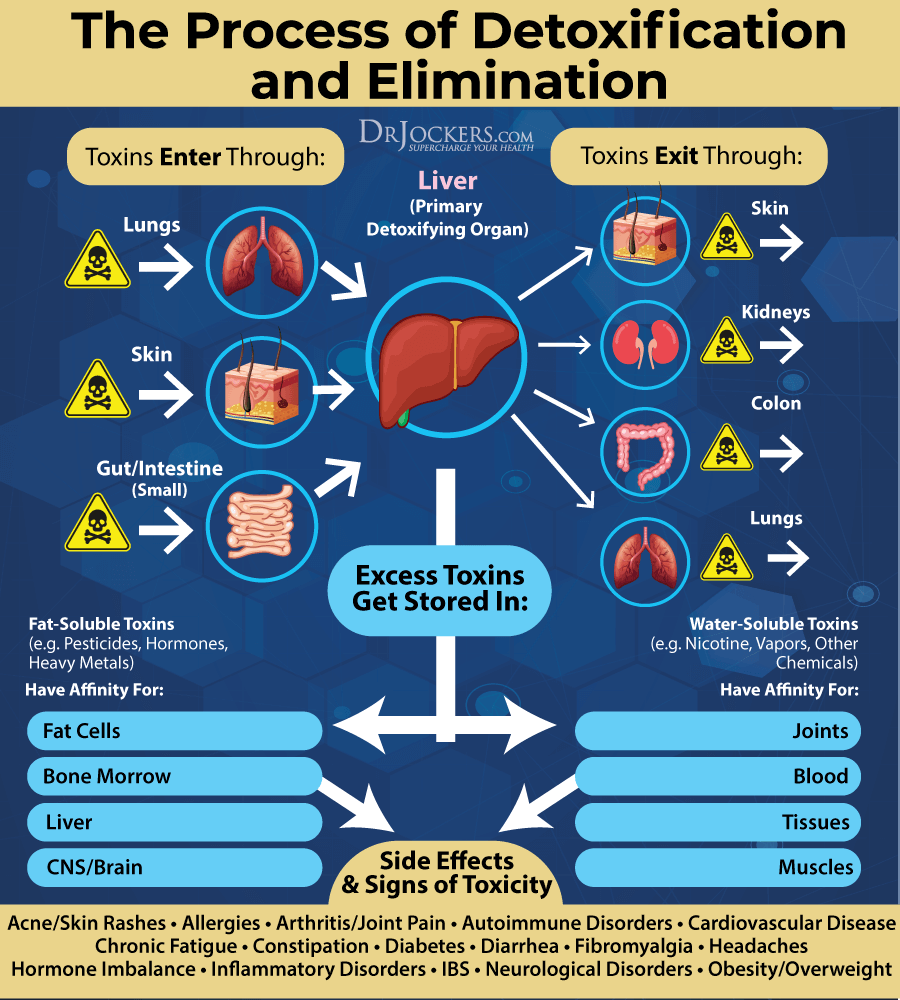
Optimize Vitamin D Levels
Low vitamin D levels may increase the risk of infertility. Spend time outside in the sun to increase vitamin D and eat vitamin D-rich foods such as oily fish, liver, and egg yolks.
Additionally, I recommend taking a daily vitamin D supplement with vitamin K2 to improve absorption. Look to optimize your levels and get them between 50-100 ng/ml through regular sun exposure, a vitamin D-rich diet, and supplementation.
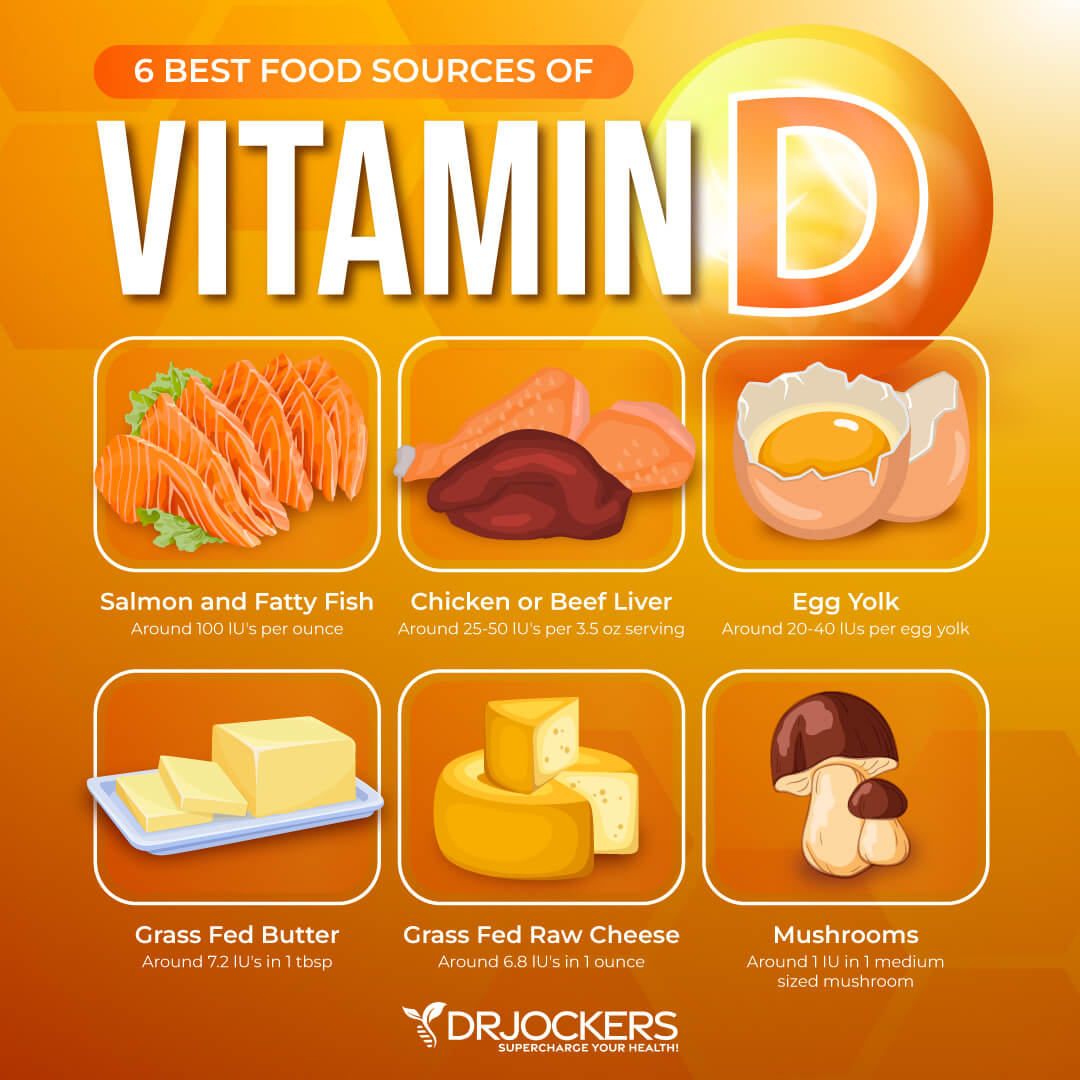
Improve Zinc Levels
Zinc levels may also impact fertility. Eat foods that are rich in zinc, such as oysters, meat, beans, seeds, nuts, kale, green beans, and cacao.
Additionally, I recommend that you support your body with a daily zinc supplement taking around 20-40 mg of a zinc amino acid chelate daily. Some of the best forms include zinc glycinate, zinc bisglycinate, zinc gluconate, and zinc picolinate.
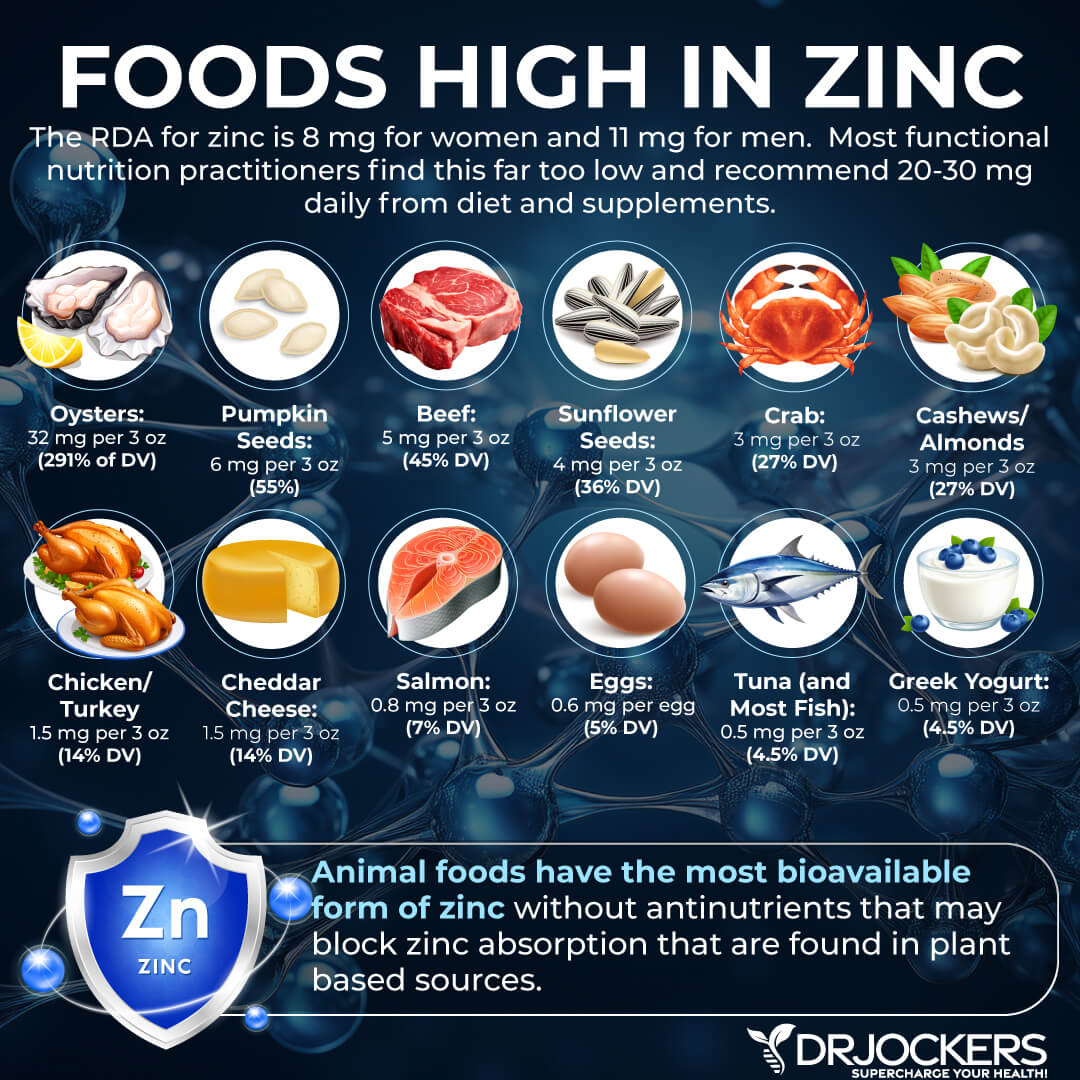
Take a Good Multivitamin & Consider Extra B Vitamins
According to a 2008 study published in Fertility and Sterility, supplementation with multivitamins and B vitamins may lower the risk of ovulatory fertility (28). I recommend that you take a high-quality multivitamin and a B vitamin complex with B12.
Since MTHFR mutations are common and can cause methylation issues, it is important that you look for one with pre-activated forms of B vitamins such as methyl-folate, methyl-cobalamin (B12), Pyridoxal-5-Phosphate form of B6, and Riboflavin-5-phosphate form of vitamin B2. The methyl groups are in the active form and will be better utilized by the body.

Increase Vitamin C Levels
Vitamin C may be beneficial for both male and female infertility. A 2006 study published in the Journal of Medicinal Foods has found that oral supplementation of vitamin C may improve the quality of semen (29).
A 2003 study published in the Central European Journal of Public Health has found that ascorbic acid may benefit infertility treatment in females (30). Eat plenty of vitamin C-rich foods, including citrus, strawberries, pineapples, peppers, broccoli, and Brussels sprouts, and take a daily vitamin C supplement.
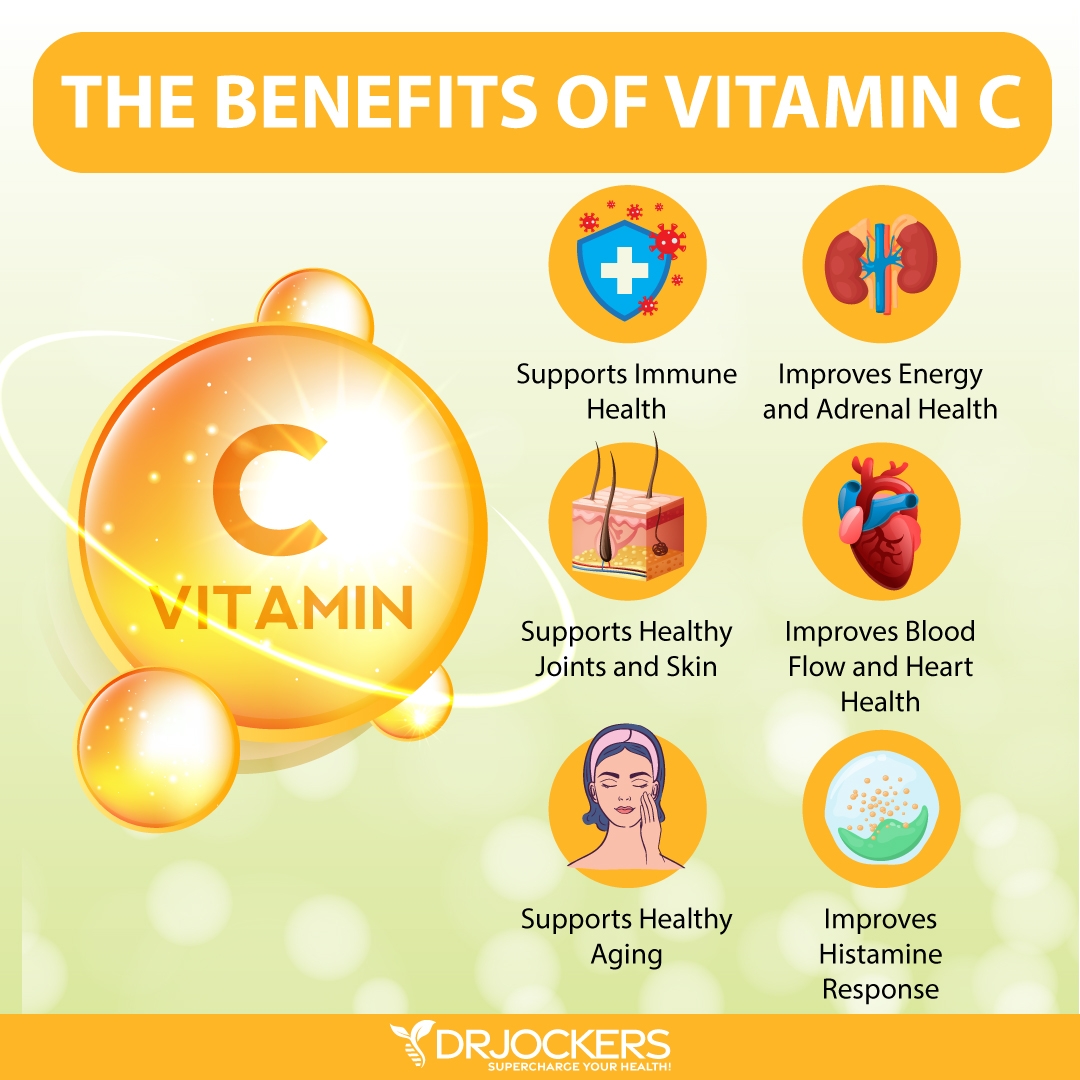
Consider Using Chasteberry
Chasteberry comes from the chaste tree which is native to Asia and the Mediterranean region. It offers many health benefits, including some for fertility. According to a 2017 systematic review published in Electron Physician, chasteberry may help infertility, as well as pre-and post-menstrual disorders (31).
According to a 2013 systematic review published in Planta Medica, chasteberry may be beneficial for female reproductive disorders (32). I recommend that you consider chasteberry supplementation to improve your fertility.

Final Thoughts
About 10 percent of couples are dealing with infertility. If you are one of them, you are not alone. The good news is that you don’t have to be part of the statistics. You can improve your health naturally. Follow my top natural support strategies for infertility to improve your health and well-being.
If you want further help with your health, we offer long-distance functional health coaching programs. For further support with your health goals, just reach out and our fantastic coaches are here to support your journey.
Inflammation Crushing Ebundle
The Inflammation Crushing Ebundle is designed to help you improve your brain, liver, immune system and discover the healing strategies, foods and recipes to burn fat, reduce inflammation and Thrive in Life!
As a doctor of natural medicine, I have spent the past 20 years studying the best healing strategies and worked with hundreds of coaching clients, helping them overcome chronic health conditions and optimize their overall health.
In our Inflammation Crushing Ebundle, I have put together my very best strategies to reduce inflammation and optimize your healing potential. Take a look at what you will get inside these valuable guides below!




